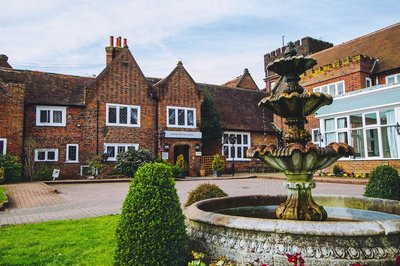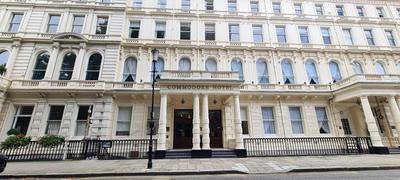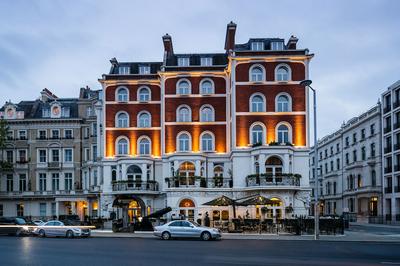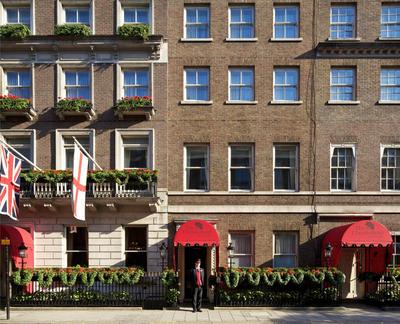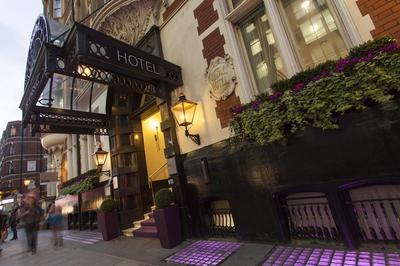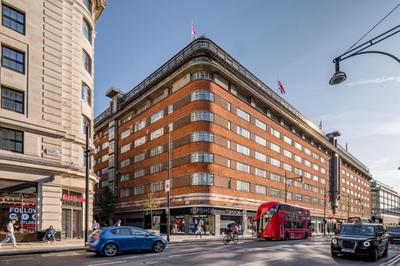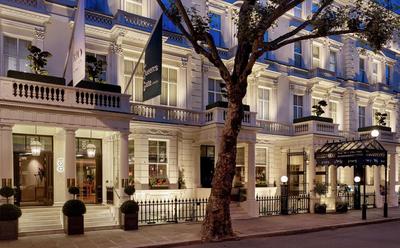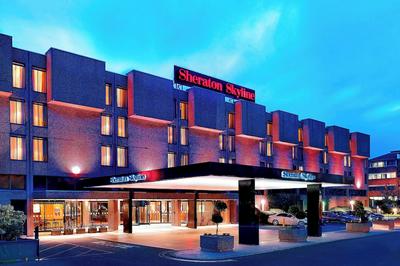When to visit United Kingdom during the year?
The United Kingdom has a temperate maritime climate characterized by mild temperatures and sufficient rainfall throughout the year. The best time to visit tends to be from late spring to early autumn (May to September), when the weather is pleasantly warm and attractions are vibrant. Summer is particularly busy, with London drawing tourists to its parks and festivals, while the Lake District becomes a haven for hikers. Winter offers unique charm in cities like Edinburgh during the Christmas season, where markets and celebrations abound. Autumn is a fantastic time for scenic views, especially in regions like the Cotswolds, showcasing stunning fall colors.
How to get to United Kingdom?
Reaching the United Kingdom is convenient due to its well-connected transport systems. Major cities such as London, Manchester, and Edinburgh have international airports, while the extensive rail and bus networks make getting around easy. Travelers from different continents will find good connectivity, with many opting for flights as the primary mode of transportation.
- Main airports include Heathrow (LHR) in London, Manchester Airport (MAN), and Edinburgh Airport (EDI), serving numerous international routes from continents like North America (from JFK/Newark), Asia (from Beijing), South America (from São Paulo), Africa (from Johannesburg), and Australia (from Sydney).
- Low-cost airlines such as EasyJet and Ryanair offer budget options for short-haul travel.
- Typical flight times from New York to London are around 7 hours, while from Sydney to London, it's approximately 22 hours.
- Main bus stations are in cities like London Victoria and Manchester Coach Station, connecting major cities.
- Popular routes include London to Manchester, Birmingham, and Cardiff, with services offered by companies like National Express and Megabus.
- The UK has international train services, including Eurostar connecting London to Paris and Brussels.
- Typical journeys from London to Paris take about 2 hours and 15 minutes.
- Main highways include the M25 and M1, connecting major cities.
- Distances vary, e.g., London to Manchester is about 200 miles, taking approximately 4 hours, depending on traffic.
- Tolls are applicable on certain roads, like the Dartford Crossing, with generally well-maintained road conditions.
Tourist activities in United Kingdom
The United Kingdom offers a diverse range of activities that cater to all types of travelers. In London, explore iconic landmarks like the Tower of London and Buckingham Palace, indulge in West End theater performances, or stroll through the vibrant Camden Market. In the countryside, the Lake District offers breathtaking views and trails for hiking, while the Cotswolds enchants with its charming villages and quaint pubs. Scotland boasts the majestic Highlands and the historic city of Edinburgh, where you can hike Arthur's Seat or dive into Scottish heritage at the National Museum. Wales attracts adventure-seekers with its stunning coastline and Snowdonia National Park, perfect for hiking and climbing. In Northern Ireland, the Giant’s Causeway creates awe-inspiring views and legends, while Belfast's Titanic Quarter narrates maritime history. For cultural enthusiasts, numerous museums and galleries showcase art and history across the nation.
Accommodation in United Kingdom
The UK provides a vast array of accommodation options to suit every budget and preference. Luxury hotels like The Ritz in London offer top-notch service and ostentatious comfort, while mid-range hotels can range from £80 to £150 per night, with brands like Premier Inn and Travelodge emphasizing affordability. For a unique stay, consider cozy bed and breakfasts and boutique hotels in the Cotswolds or Highland cottages in Scotland. Renting apartments is another popular option, particularly in cities where travelers seek a more local experience. Prices can vary significantly based on location and season, with summer typically commanding higher rates. Off-season travel during winter can present opportunities for discounts and deals.
Food in United Kingdom
British cuisine is diverse and filled with tasty comfort foods. Staples include the classic fish and chips, hearty full English breakfast, and Sunday roast with Yorkshire pudding. Popular dishes also feature Indian influences, such as curry, widely enjoyed across the country. For sweet treats, you can’t miss indulging in a traditional cream tea with scones and jam. Pubs are great for experiencing local food culture, serving everything from pies to a pint of ale. Meal prices can vary; expect to pay around £10-£20 for a main dish at a restaurant. Casual dining options and street food can often be found for less.
Important numbers and information
- Emergency Services: Police - 999, Ambulance - 999, Fire Brigade - 999
- British Embassies: Contact details vary by country. Check the government website for specifics.
- Main Airports: Heathrow Airport, Longford, UB3 5QQ, UK; Manchester Airport, Ringway, M90 1QX, UK; Edinburgh Airport, Edinburgh EH12 9DN, UK.
- Currency: British Pound (GBP); Payment Methods: Credit and debit cards widely accepted; cash occasionally needed at smaller vendors.
- Visa/Passport: EU/EEA citizens may travel with an ID card; other nationalities typically require a visa. Check specific entry requirements before traveling.
What to see in United Kingdom?
The United Kingdom is rich in cultural and historical attractions. Start with vibrant London, home to the British Museum, Tower Bridge, and the lively South Bank area, which offers art and entertainment. Edinburgh attracts visitors with its majestic castle and the historic Royal Mile. Venture to the Lake District for stunning scenery and outdoor adventures, or immerse yourself in historical sites like Stonehenge in Wiltshire. Bath, with its Roman baths, and Oxford, known for its prestigious university, provide further insight into the UK's rich heritage. Cardiff boasts modern attractions mixed with historic sites, including Cardiff Castle. Don't forget the breathtaking coastal views of Giant's Causeway in Northern Ireland and the rugged beauty of Snowdonia in Wales.
History, geography and climate
The history of the UK is punctuated by significant events, including the establishment of the Roman Empire, the Norman Conquest in 1066, and the Industrial Revolution. Geographically, it comprises the island of Great Britain and northern Ireland, featuring diverse landscapes from the rolling hills of the Cotswolds to the rugged peaks of the Scottish Highlands. The UK is surrounded by seas—North Sea, Atlantic Ocean, and Irish Sea. The climate is maritime with relatively mild winters and cool summers; average temperatures range from 0°C in winter to around 20°C in summer, though it can vary by region.
Population and culture
The United Kingdom has a population of approximately 67 million people, with a rich tapestry of cultures and languages, predominantly English. It is a multicultural society with significant contributions from Scottish, Welsh, Irish, and immigrant communities. Major religions include Christianity, Islam, and Hinduism, reflecting its diverse heritage. Cultural traditions such as Guy Fawkes Night, Christmas, and host of summer music festivals showcase the country's vibrant culture. The UK is known for its literary heritage, boasting famous authors like Shakespeare and Dickens, and is home to global cultural institutions, including the BBC and National Gallery.

